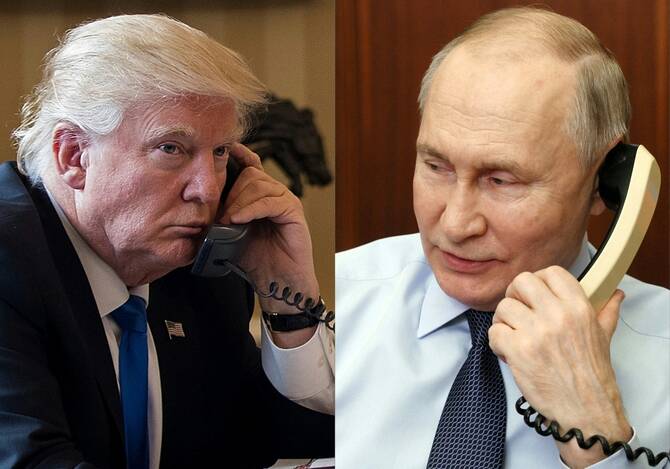
- ARAB NEWS
- 01 Aug 2025

As a journalist, it has struck me in recent months how the people I meet — friends and acquaintances — have stopped discussing the state of the world whenever we sit down for a chat. At a recent gathering, there was even a rule to steer clear of politics, news and the chaos the world is witnessing. The few who still appeared to care revealed, in their questioning, a deep anxiety of what is to come, with some fearing the worst, including another world war.
Amid the uncertainty and persistent fog of political discord enveloping our world, fatalistic thoughts have become dominant and a natural reaction is for people to evade the subject of conflict. However, polls reveal that war is on people’s minds everywhere, especially in Europe. A recent survey by YouGov found that between 41 and 55 percent of respondents in France, the UK, Germany, Italy and Spain believe that another global conflict is likely in the next five to 10 years, with the vast majority also expecting that nuclear weapons will be used. In Britain, 89 percent of those questioned believed their country would be involved, while in Italy the figure was 66 percent.
Russia is ranked by Europeans as the major obstacle to peace, with 82 percent seeing Moscow as a moderate to major threat
Mohamed Chebaro
According to the poll, Russia is ranked by Europeans as the major obstacle to peace, with 82 percent seeing Moscow as a moderate to major threat. Islamist terrorism came second, especially for people in Germany. But the surprise is that US President Donald Trump’s controversial foreign policies, including threats to abandon Europe’s defense, side with Russian leader Vladimir Putin against Ukraine and annex Greenland, have led people in Germany, France and Spain to rank the US as a threat to peace on the continent.
Despite these fears, I believe that total war is still some distance away and is unlikely, unless a breakdown in communication takes place between the big powers. Nevertheless, all parties are hardening their postures and this is increasingly being felt by citizens, increasing anxiety levels and threatening participation and trust in traditional channels and institutions.
The effects of the ongoing wars in Ukraine and Gaza, the avoidable conflicts elsewhere, the neglect of global warming and its implications, the widening gap between rich and poor, and an unrestrained digital realm magnifying discord are compounded by a political stalemate between the big powers.
Recent outbursts by Trump directed at Putin increase this sense of uncertainty and fear. The US leader prides himself on being a deal-maker capable of stopping wars, knocking reason into hotheads and solving historically, geographically and geopolitically complex conflicts at the stroke of a pen.
Trump’s deal-maker image has been dented and his ability to live up to his own boasting is being threatened by Putin
Mohamed Chebaro
However, his recent emotional attack on the Russian leader reflects a realization that this deal-maker image has been dented and that his ability to live up to his own boasting is being threatened by none other than his Russian counterpart.
People believed Trump was sincere about seeking peace, but his methods of achieving it seem warped, intensifying risks and threats, as sensed by those polled in Europe. A change of tack is urgently needed.
As everyone is witnessing, the world cannot survive more chaos and shortcomings. The chaotic policymaking that characterized Trump’s first administration is reaching new heights in his second. Cooperating with allies before foes could be a conduit for bringing conflicts to a close, or at least keeping them under control, offering the White House what Trump yearns for most — to be seen as presiding over a mighty America that can reduce the threat of world wars, not increase them.